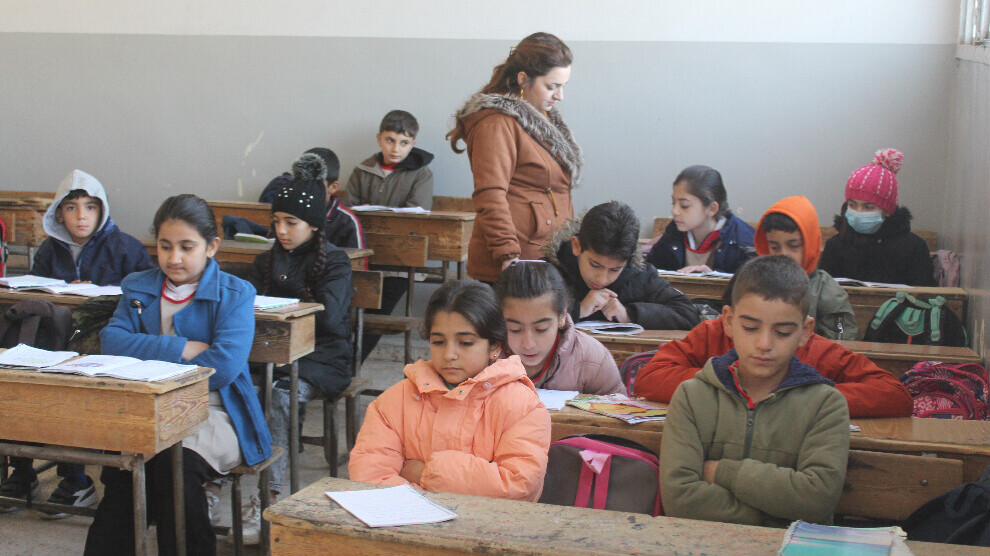Schooling continues in Jazira despite Turkish state's attacks
Despite the disruptions due to the Turkish state's attacks on Jazira, 200 thousand students continue their education.
Despite the disruptions due to the Turkish state's attacks on Jazira, 200 thousand students continue their education.

Kurdish education, which started in Jazira with the Rojava Revolution, continues uninterrupted. With the joint work of the Kurdish Language Association and the Education Board, education is provided in pre-school, primary, secondary, high school and universities within the framework of the curriculum of the Democratic Autonomous Administration of Northern and Eastern Syria.
200 thousand students attend 1,782 schools. A total of 16 thousand teachers are working in those schools. Despite the embargo and attacks against the region for years, the Democratic Autonomous Administration and the Education Board are making great efforts to prevent the education system from being disrupted.
Speaking to ANF, Jazira Education Board co-chair Gulistan Ismail underlined that the first fundamental steps taken in the Rojava Revolution were about reclaiming the language and said: "The Kurdish Language Association played a primary role. The Kurdish Language Association grew step by step, then the Education Board was created and a curriculum institution was established within it. Primary, secondary and high school curricula were prepared. The entire curriculum is in three languages; Kurdish, Arabic and Syriac. Students receive education in their own language. Starting from the 4th grade, other languages begin to be taught in every school. Kurdish children begin to study Arabic, Arab children begin to study Kurdish, and Assyrian children electively choose the language they want. Children are taught in whatever language they want. In addition, we teach foreign languages too."
200 thousand students, 16 thousand teachers
Ismail noted that 200 thousand students receive education in their own language and the languages of their choice in Jazira, where 16 thousand teachers work, and said: “Each teacher provides education in their own discipline. All people living in Northern and Eastern Syria go to the same schools. So there is no separate school for each language. Everyone studies in their own language in separate classes within the same school."
Embargo and attacks for years
The region has been under embargo, blockade and systematic attack for years, and has been experiencing difficulties. This, of course, is also reflected in the education system, said Ismail, adding: “The biggest problem experienced by children, families and teachers is the continuous attacks of the Turkish state. Their targeting of the region's infrastructure causes disruption.”
Ismail continued: “In schools in border areas, children have to stay away from their schools for long periods of time. Children always go to school with fear. They don't know when there will be an attack or if their school will be hit. For example, more than 40-50 schools remain in the areas occupied by the Turkish state along the Zirgan and Til Temir frontline. We make great efforts to ensure that children are less affected and do not struggle with psychological problems.”
Ismail also said that there are electricity and diesel problems as a result of the Turkish state targeting the infrastructure. “All facilities were put at the service of schools. Diesel and stoves were distributed to all schools. However, we cannot say that we have overcome all the problems. Those living in camps, in particular, experience twice the difficulty."